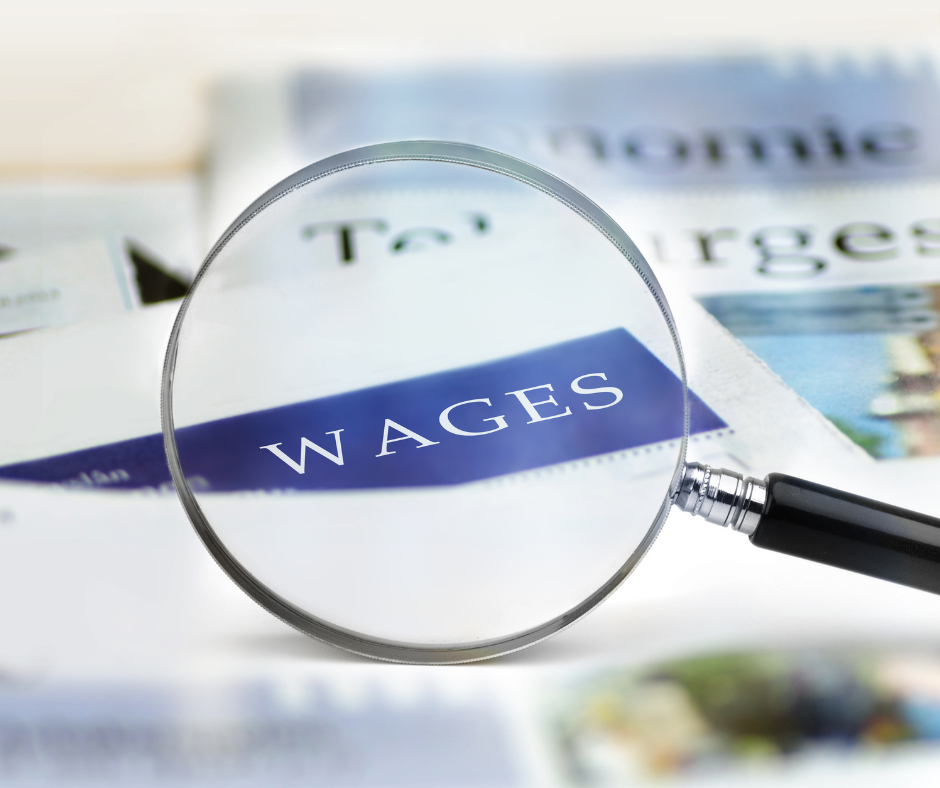SUPERANNUATION!
It’s a word that still strikes fear into the hearts and minds of employers, despite it now being well-entrenched in Australian society since its inception in 1992!
After all this time, superannuation should be simple, but it still seems that many employers are not quite on top of all the rules surrounding it – that’s why your professional bookkeeper is the person to go to when you have any questions.
In this blog, we attempt to give you, the employer, the most straight-forward information so you can understand the basics, but of course, if in doubt, always consult a professional.
PLEASE NOTE: This blog is directed at EMPLOYERS only. Employees wanting to further understand the intricacies of superannuation should seek independent advice from a financial advisor or wealth management expert.
Now, it’s likely that many people reading this blog will have some knowledge around superannuation rules and laws, but we will start with the very basics, just as a guide for those who may be new to business.
What is the Superannuation Guarantee (SG)?
It is a payment an employer must make to employees, on top of their ordinary gross earnings, paid into a specific fund designed to contribute towards a person’s retirement.
Currently, the Super Guarantee is 11%. This means that employers must pay an additional 11% on top of an employee’s gross wages into their nominated superannuation fund.
As an example; if an employee is paid Gross Wages of $1000 per week, then an extra $110 is allocated and paid into their superannuation fund.
Employers must pay their superannuation contribution into the employee’s nominated superannuation fund by a designated time, (currently) in a quarterly accounting period. Fines are issued if payments are not made on time.
If employees do not nominate a fund, or do not have one, the employer must then pay into the business’ default super fund.
If the employee cannot access their super information for any reason, and does not make a choice as to which super fund to contribute to, the business can search for an employee’s fund on the ATO portal.
Who is eligible for super?
All employees over the age of 18 working full time, part-time or casual (no minimum hours)
Temporary residents working full-time, part-time or casual (again, no minimum hours)
Under 18s working 30 hours per week.
(Note: Under 18s working less than 30 hours are not eligible for super).
Compulsory Employer Contributions
Employers must contribute at least the statutory amount of employees’ ordinary wages, currently set at 11%.
For businesses, this is an eligible expense and tax deduction, as long as it is paid by the due date. The due date is currently the 28th of the month, following the end of the reporting quarter.
If the calculated superannuation guarantee is received by the employee’s fund after this date, the business cannot claim the tax deductibility and must lodge a Superannuation Guarantee Charge Statement. Penalties and interest apply, both of which are not tax deductable. It is important to allow 10 days for the funds to clear to the employee’s super fund.
If a business does not pay their employees’ superannuation, the directors become personally responsible for the debt.

How is Super calculated?
Super is generally paid on gross OTE or Ordinary Time Earnings, including annual and personal leave.
In most cases, overtime, travel allowances, general allowances or per/kilometre rates do not attract Super.
Super is not generally paid on Workers Compensation payments.
As with all payroll, always check with the relevant award. Some awards may deem that Super is to be paid on certain allowances, particularly if they apply on an hourly basis.

Salary Sacrifice Superannuation (SSS)
SSS is an arrangement where the employee agrees with the employer to redirect part of their pre-tax salary into their super fund.
An employer can offer an SSS arrangement as part of the overall salary package.
As an employer, you must still pay your full super guarantee obligation as though there was no salary sacrifice arrangement in place.
There is generally no extra cost to the employer for salary sacrifice arrangements, however it may reduce the taxable income of the employee. It is important that employees receive independent advice from their Tax Professional around the effects of tax with an SSS arrangement in place. Considerations include the yearly cap on concessional contributions, the affect on Centrelink payments and other income the employee may have. You can read more about the concessional cap and tax implications for employees here: https://www.ato.gov.au/tax-rates-and-codes/key-superannuation-rates-and-thresholds/contributions-caps
An SSS agreement must be in place prior to work being done. In other words, if your employee wants to cash out their annual leave and salary sacrifice all of it to superannuation, there must be an agreement between the employer and the employee in place prior to the leave being accrued. Only leave accrued from the date of the agreement can be salary sacrificed to superannuation. This also applies to termination, when the employee may want to salary sacrifice some or all of the termination payment.
What can you do to ensure a smooth superannuation process?
As an employer, it is your responsibility to ensure your employees are paid the correct superannuation guarantee and any salary sacrificed superannuation, on time and to the correct nominated fund. The easiest way to ensure you are compliant is to have good processes in place and use payroll software. Payroll software automates calculations and deductions and will ensure the correct data is reported to the ATO via STP reporting.
The ATO is now data matching STP data with lodged superannuation data. We are already seeing an increase in payroll audits, and the one thing they are focussing on is late or incorrect lodgement of superannuation.
The following is a brief check list to ensure you are always compliant:
Use payroll software to ensure SG contributions are calculating correctly.
Ensure you deduct agreed salary sacrifice superannuation amounts from employees’ pre-tax salary.
Pay the statutory superannuation guarantee of eligible salary and salary sacrifice super to your employees' super funds well before the due date. As soon as you have processed your last pay for the month, pay your superannuation liabilities.
Ensure you and your employees have salary sacrifice superannuation agreements in place prior to deducting and paying salary sacrifice superannuation.
Maintain detailed payroll records, such as employee salary and wage details, calculation of super contributions (both compulsory and salary sacrifice), payment dates and amounts to super funds along with a record of the super fund details and member IDs.
And finally, set aside the superannuation for each pay period into a separate ‘super and tax’ account, so you always have the cash when you need it. Paying your superannuation obligations monthly assists with your cashflow, keeps down your liabilities and is a positive move for your employees!
What’s on the horizon for superannuation?
The superannuation guarantee will increase each July by 0.5% until July 2025, when it will reach 12%.
And, while this is not yet law, the Australian Government has announced that from 1st July 2026, employers will be required to pay their employees’ super at the same time as their salary and wages. This has been called Pay Day Superannuation.
This is a positive move for employees, who will benefit from receiving their superannuation quicker. It is also positive for businesses as it will greatly assist with cashflow. However, consultation between the ATO, Treasury and industry bodies will iron out the issues of this plan, creating a workable system for all. We are keen to see the outcome of these discussions and will update this information later.
As always, don’t forget to reach out to your payroll professional or bookkeeper if you have any questions. Contact Sue at WestBAS, she’s happy to help with any of your queries around superannuation.

